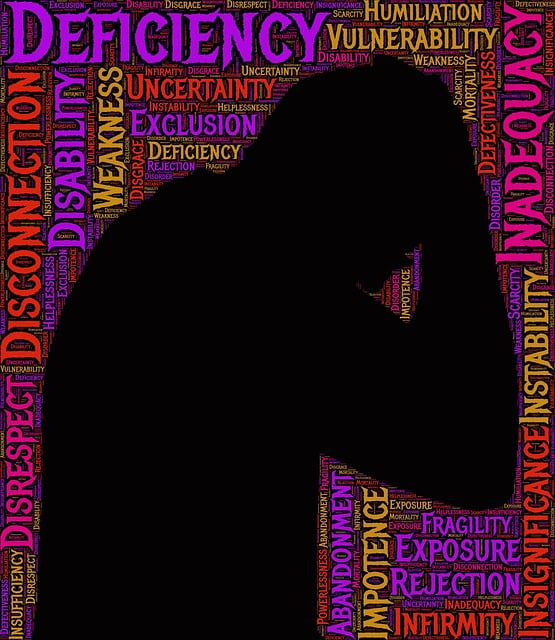Louisville Codependency Therapy (LCT) emphasizes emotion regulation as a cornerstone of recovery for codependency and mental health challenges. By teaching techniques like mindfulness, self-care, and emotional awareness, LCT fosters resilience and well-being. These strategies empower individuals to manage emotions, resolve conflicts, and enhance relationships, while also contributing to Mental Illness Stigma Reduction and Mental Health Awareness. Success is measured through both short-term skill assessment and long-term behavioral changes, demonstrating improved mental health outcomes and quality of life.
Emotion regulation is a vital skill for navigating life’s challenges. This article explores the importance of mastering these techniques and delves into Louisville Codependency Therapy as a powerful tool for teaching them. We’ll cover common strategies, their practical application in daily life, and how to measure success. By understanding these concepts, individuals can foster resilience, improve relationships, and achieve greater well-being. Discover how Louisville Codependency Therapy offers a structured approach to mastering emotion regulation skills that can yield lasting benefits.
- Understanding Emotion Regulation and its Importance
- The Role of Louisville Codependency Therapy in Teaching These Techniques
- Common Emotion Regulation Techniques: A Deep Dive
- Implementing and Practicing These Strategies in Daily Life
- Measuring Success and Long-term Benefits of Emotion Regulation Skills Acquisition
Understanding Emotion Regulation and its Importance

Emotion regulation is a crucial skill to cultivate, especially for individuals navigating codependency or other mental health challenges. It involves recognizing, understanding, and managing one’s emotions in healthy ways, enabling better decision-making and improved relationships. Louisville Codependency Therapy often emphasizes the importance of emotion regulation as a cornerstone of recovery. By learning effective techniques, individuals can transform their emotional responses, fostering self-awareness and resilience.
This process empowers folks to engage in compassion cultivation practices, resolve conflicts constructively using conflict resolution techniques, and cultivate positive thinking. It’s not about suppressing emotions but rather learning to respond mindfully and adaptively, ensuring better mental well-being and enhancing overall quality of life.
The Role of Louisville Codependency Therapy in Teaching These Techniques

Louisville Codependency Therapy (LCT) plays a pivotal role in teaching emotion regulation techniques by addressing underlying codependent behaviors and beliefs. This therapeutic approach, designed to enhance mental health awareness, focuses on helping individuals break free from unhealthy emotional patterns. Through LCT, participants learn to identify and challenge the codependent dynamics that often lead to heightened emotions and difficulties in managing them effectively.
By incorporating principles of Mental Health Education Programs Design, LCT equips individuals with practical tools for burnout prevention strategies for healthcare providers—a demographic particularly susceptible to codependency due to their high-stress environments. These techniques not only foster self-care but also strengthen relationships by promoting healthier communication and boundaries. The result is improved emotional resilience and enhanced well-being, both personally and professionally.
Common Emotion Regulation Techniques: A Deep Dive

Emotion regulation techniques are a crucial aspect of Louisville Codependency Therapy, helping individuals navigate and manage their feelings effectively. Common strategies include mindfulness practices, such as deep breathing exercises and meditation, which foster self-awareness and emotional control. By focusing on the present moment, these techniques enable folks to interrupt negative thought patterns and reduce impulsive reactions.
Additionally, self-care practices play a pivotal role in emotion regulation. Engaging in activities that nurture physical and mental well-being, like regular exercise, adequate sleep, and creative outlets, can significantly enhance emotional resilience. Mental health awareness campaigns and stigma reduction efforts also contribute to individuals embracing their emotions and seeking appropriate support when needed.
Implementing and Practicing These Strategies in Daily Life

Implementing and practicing emotion regulation techniques in daily life is a crucial step towards enhancing mental health and well-being. At Louisville Codependency Therapy, we emphasize the importance of integrating Mind Over Matter principles into one’s routine. By dedicating time each day to practice mindfulness exercises, deep breathing techniques, or even journaling, individuals can gain better control over their emotions and react more calmly in challenging situations. These strategies are not just theoretical; they become a natural part of one’s toolkit for navigating life’s ups and downs.
Incorporating these practices into daily life also contributes to Mental Illness Stigma Reduction Efforts and fosters Mental Health Awareness. When individuals take proactive measures to regulate their emotions, it sends a powerful message that mental health is a priority, not a weakness. This shift in perspective encourages open conversations about emotional well-being and helps create a more supportive environment where seeking help for mental health concerns is normalized rather than stigmatized.
Measuring Success and Long-term Benefits of Emotion Regulation Skills Acquisition

Measuring success in emotion regulation technique teaching involves assessing both short-term skill acquisition and long-term behavioral changes. Therapists often utilize standardized assessment tools to evaluate a client’s ability to identify, understand, and manage their emotions effectively. These tools can range from structured interviews to self-report questionnaires, providing quantitative data on emotional control. In the context of Louisville Codependency Therapy, therapists might track progress by observing clients’ responses during role-playing scenarios or real-life situations, noting improvements in emotional regulation over multiple sessions.
Long-term benefits of developing emotion regulation skills are substantial, extending beyond individual therapy sessions. Research suggests that improved emotional control can lead to better mental health outcomes, including reduced symptoms of anxiety and depression, enhanced coping strategies, and increased overall well-being. Additionally, these acquired skills can positively influence interpersonal relationships, academic or professional performance, and even societal engagement. By fostering inner strength development, individuals equipped with emotion regulation techniques become more resilient, adept at navigating challenging situations, and better able to advocate for their mental health needs, aligning with the broader goals of Mental Health Policy Analysis and Advocacy.
Louisville Codependency Therapy offers a powerful framework for understanding and mastering emotion regulation, a vital skill in navigating life’s challenges. By delving into various techniques, individuals can gain control over their emotional responses, fostering resilience and improved well-being. Implementing these strategies requires consistent practice, but the long-term benefits—such as enhanced mental health and stronger relationships—are profound. With Louisville Codependency Therapy as a guide, mastering emotion regulation is achievable, enabling folks to embrace life’s symphony with greater balance and poise.














